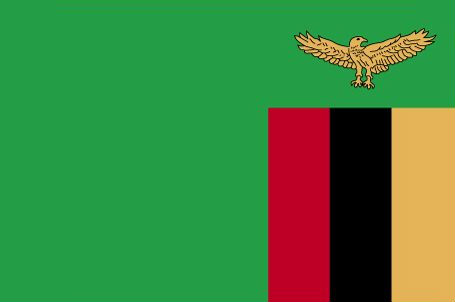Login form
Customs of Zambia
 Marriage and Family
Marriage and Family
Traditionally, marriage takes place soon after a girl reaches adolescence. In all marriages, elders are consulted and negotiations for the lobola, which is the bride-price or dowry, take place. Both church and traditional wedding ceremonies are common, although some couples choose to simply register at a district office. The influence of Christianity has decreased the traditional practice of polygamy. 5.53 children per woman (2001)
Extended families in
The elderly, chiefs, and others of high status are shown great respect. The care of the elderly is deemed to be a privilege rather than a burden. It is considered extremely important to attend funerals of relatives and neighbors in order to show solidarity and respect.
Eating
Nshima, a dough or thick porridge most commonly made from maize meal, is the dietary staple. In the north people often make it from cassava, and near the
In many homes, people eat meals from communal dishes. Zambians normally eat using the fingers of their right hand. Some people use utensils, mainly with food such as rice or potatoes, but also with nshima. Water is served with meals. In some areas, especially in villages, the men eat separately from the women and children.
Socializing
Greetings in
Appointments are necessary for official or business matters, but in rural areas people tend to be flexible about time, unless one is visiting the local chief. Having a visitor in a home at any time is considered an honor. In many Zambian cultures, unexpected visitors at mealtimes are expected to join in eating the meal, and it may be considered discourteous if they do not. Both hands are extended when presenting and receiving a gift, and kneeling when giving a gift is also customary in many parts of the country.
Recreation
Traditional dancing is the main form of entertainment in
Holidays and Celebrations
Zambia’s national holidays include New Year’s Day (1 January), Easter (Friday through Sunday), Labor Day (1 May), Youth Day (19 March), African Freedom Day (25 May), Heroes and Unity Day (first Monday and Tuesday in July), Farmers’ Day (first Monday in August), Independence Day (24 October), and Christmas Day (25 December). Harvest celebrations, initiation rites, ancestor veneration, and other traditional ceremonies do not have fixed annual dates.
Source: Encarta Interactive World Atlas

